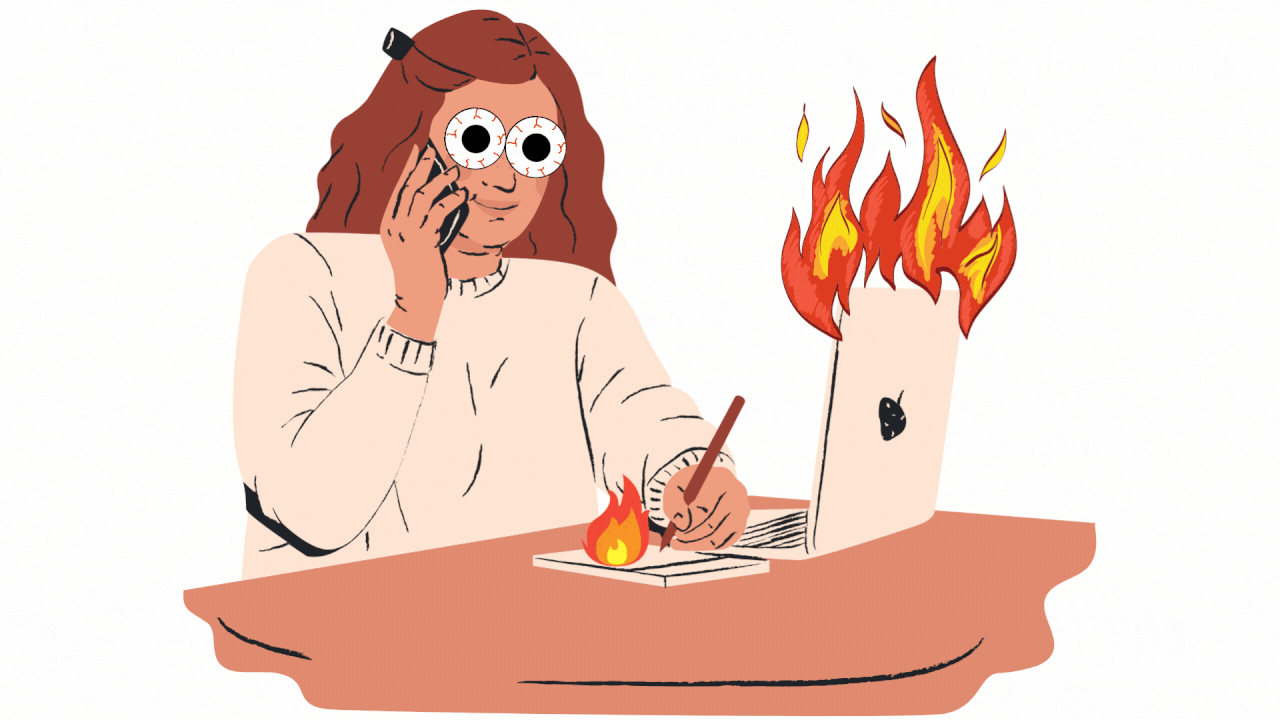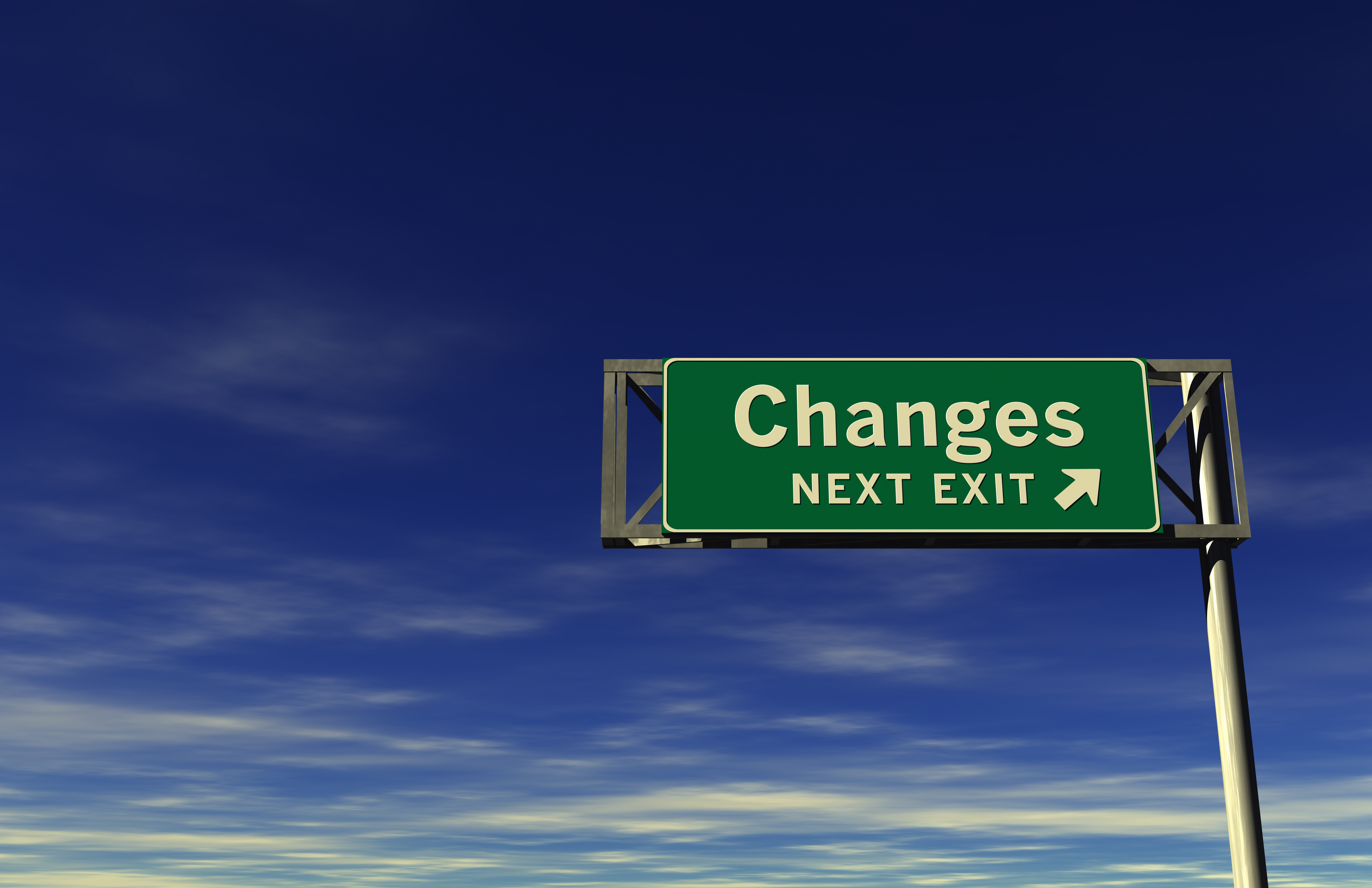Have Yourself A Merry Little Q4: Managing End of Year Burnout
Remember about twelve years ago when every ad read like "I live to rise and grind! Coffee is my wife and we have two kids, Adderall and Empty...

Oooh, boy, we are TIRED. Exhausted. Over it all, and then some.
Was work always this hard? Was the act of doing more than one thing in a day ever even possible? How did we manage before the pandemic? How long until I can just crawl into bed and play Words With Friends for several hours, until sweet sleep whisks me away?
Burnout is real. It's been increasing steadily in recent months as more people return to their offices and resume commuting, inflation puts a strain on wallets, and the roiling economy puts a strain on business.
Perhaps you've absorbed another person's job on top of your own after a round of layoffs or a sudden resignation. Maybe your client asks are just getting out of control. Or maybe you're just exhausted, for unexplainable, ephemeral reasons. It could be the lingering effects of having had covid, or the trauma of the past two years spreading through your body, or
Whatever the reason, it's A) not your fault and B) manageable, to an extent.
Here are 3 ways we recommend to combat those encroaching feelings of burnout:
*Take
**Time
***For Yourself
Yes, I know. Everyone and their filter-addicted influencer cousin who runs a dog yoga studio in Santa Monica tells you to drink more water. But what this simple suggestion really means is, take time for yourself. Make sure that every day, you are doing things that replenish your battery, be it drink an extra glass of water or take a walk around the block with your elderly basset hound or, like me, eat lunch while watching 15 minutes of Inventing Anna on Netflix.
If you work in an office, stop eating lunch at your desk. Go outside when you can. If you work from home, stop eating lunch while you answer emails. Eat lunch separately, in a different room from where you work. Go outside at regular intervals. Run an errand midday, just to get out of the house. Have a time in the afternoon or early evening when you no longer look at email, and communicate this to your team that any emails received after that time will be answered the next day.
Burnout occurs when we feel like work is endless, or it bleeds over into every part of your life. Creating separation, boundaries, guardrails, gives us room to breath and re-energize. And, it will create a greater sense of control in the face of so many things feeling out of control.
Not literally. I mean, unless you want to. Self high-fives are fun!
An under-examined driver of burnout is the feeling of meaninglessness to our work. And this is caused, in part, by a lack of proper recognition/credit to a job well done. If you're not getting acknowledged for your hard work, what's your incentive to continue to work hard?
If you're a manager, this means making sure you are encouraging and celebrating your employees with some regularity. This doesn't mean throw Nancy a pizza party every time she actually replies to an email within 24 hours, but it means creating a culture where people's work is noticed. Most people don't need a lot of affirmation, but most people need a little. And, it also has to be authentic. Humans can sense when you're saying something out of obligation versus when you have genuine excitement and interest.
Lastly, and perhaps most difficultly, we have to be able to celebrate ourselves. That means giving ourselves positive reenforcement when we know we did a great job, or even just a good job. Or maybe we just did a C+ job and given the wild circumstances, that itself was a minor miracle. Basically, we have to stop beating ourselves up when we're not perfect, or if we miss an email, or are 5 minutes late to that Zoom.
Make them. Respect them. Encourage others to create them. We all need different things in place to be successful in our work, and if this pandemic has revealed anything, it's that one-size-fits-all expectations of employees are a recipe for discord and frustration.
Everyone works at a different pace, has different intangible skills, and reacts differently to stress. Being clear about how you work best and understanding how your employees work best is key to avoiding that feeling of everyone being ground down and flattened by unreasonable expectations.
An example: Maybe you have an employee who doesn't speak up much in meetings but an hour later, once they've had time to process, they send emails brimming with thoughts. Knowing this and respecting this will put less pressure on them in those meetings, creating less stress and giving them more time to do their valuable thought-work.
Burnout occurs when expectations outweigh ability/time/bandwidth. Boundaries, much like a dam in a river, can help us modulate the intensity of work to some degree and keep ourselves sane and safe in the face of so much false urgency. We know certain things are out of our control, but if we focus on what we can control, we can likely subdue a significant amount of those burnout feelings
What are ways you are coping with burnout? Let us know in the comments, or send us an email!
andy@fairplaycommunications.com

Remember about twelve years ago when every ad read like "I live to rise and grind! Coffee is my wife and we have two kids, Adderall and Empty...

Adaptation is something humans are born with. In the wild, it can make the difference between life and death. While the stakes in the workplace may...

Picture this: You’re sitting in class, the teacher has finished the lesson, and you just have to get the details of your final assignment before...